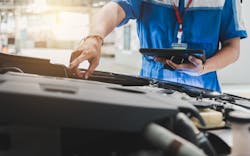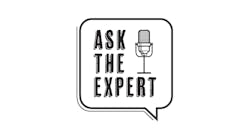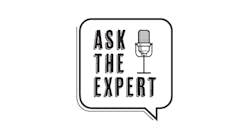Global recession may have hit several industry sectors but is the aftermarket industry immune? Steve Leal looks at the situation and recommends how shops can insulate themselves against any uncertainty arising from the disruptions.
For quite some time, the global aftermarket industry has been resilient to all that has been happening around. We have seen it all the industry survived the two-year pandemic, we continue to cope with manpower shortages, we are keeping up with the changing automotive technology, and, together, we have addressed all challenges for the greater good of the industry.
Even as we adjust to the “new normal”, the information coming out of media channels these days is not very encouraging. The world is headed into its worst recession, the supply chain disruptions have impacted the automotive industry, and global disruptions have affected the procurement of critical automotive parts. I am hoping that the devastating effects of all these challenges do not impact our industry significantly.
Almost all industry leaders who I have spoken to in recent times seem to agree that the industry will be able to survive the latest recessional trends. Historically speaking, the aftermarket indu-stry is large, fragmented and recession-proof. I would like to share that optimism, except that I believe being prepared and nimble should be the mantra for all those who have a stake in the automotive and aftermarket business.
Though the situation is volatile and hard to predict, recessions are not new to our industry. They have a certain life cycle and typically take place once every eight or 10 years. During that time, the most robust businesses survive, while those who haven’t kept up with the changes around them get purged. We have witnessed some industry mammoths downing their shutters during seemingly minor recessions, while new names thrive from unexpected opportunities.
In all this drama taking place, there may be some good news and bad for the aftermarket in-dustry. In the past, whenever recession struck, customers increasingly choose the lower-cost option of repairing their current vehicles instead of buying new ones. As per current global tren-ds, demand for new and used vehicles are high and wait periods are typically between 5 to 10 months, forcing consumers to hold on to their old vehicles for much longer than before. Such customers prefer to have their vehicles repaired and making them last longer.
While we are yet to see any major impact of recession on our industry, my advice to shops is to consider the recession as a temporary setback (just like we did for the pandemic) and be ready to modify your operations every time, to keep yourselves ahead of the curve. Here are my Top Five recommendations to insulate your business from the ongoing economic uncertainty.
Develop a “Playbook”: Many smart entrepreneurs begin by taking a real, hard look at their operations to identify near and immediate risks to their business. Their “Playbook” recognizes imp-ending challenges and is flexible to fine-tuning and change as they go along. They deter-mine what’s required for the business, implement cost-efficient operations, and look for longer-term gains. Remember–those important decisions you take during this critical time may make or break your company.
Consolidate your business: Shops are increasingly keen to put their customers back on the road in the quickest time possible. This means, they are always looking to consolidate associ-ated aftermarket services collision repair, glass repair and mechanical services under one roof. Doing so allows them better control over the repair process and prevention of unnecessary operational costs, time and effort.
Joining a franchise network: There has never been a better time to align your business with an established aftermarket franchise network. At Fix Network, we have many inspiring success stories of shop owners who have benefitted from being a part of our family. Joining a franchise net-work opens a world of advantages your teams learn from the finest minds in international repair and customer service, you have access to insurance partnerships and parts manufa-cturers, you have established KPIs for business success, and your shop receives 24x7 marketing, operational and technical support from the network’s team.
Training and Certification: I will always be a lifelong advocate of continuous training and certification. During this time, when business is slow, it would be a good time to invest in training your teams to repair the most complex vehicles. As an example, at our training centres, I am witness-ing a greater demand from our shops to learn how to service and repair electric vehicles. Certification gives customers the peace of mind that their vehicles are being looked after by trusted hands and are being repaired safely.
Not everyone likes too many disruptions but adapting and adjusting accordingly will go a long way to protect your business from conditions beyond our control. Fingers crossed, this too shall pass!
Steve Leal is the President & CEO of Fix Network World, the leading global automotive after-market services network which includes ProColor Collision. The family of brands spans more than 2,000 points of service internationally.



